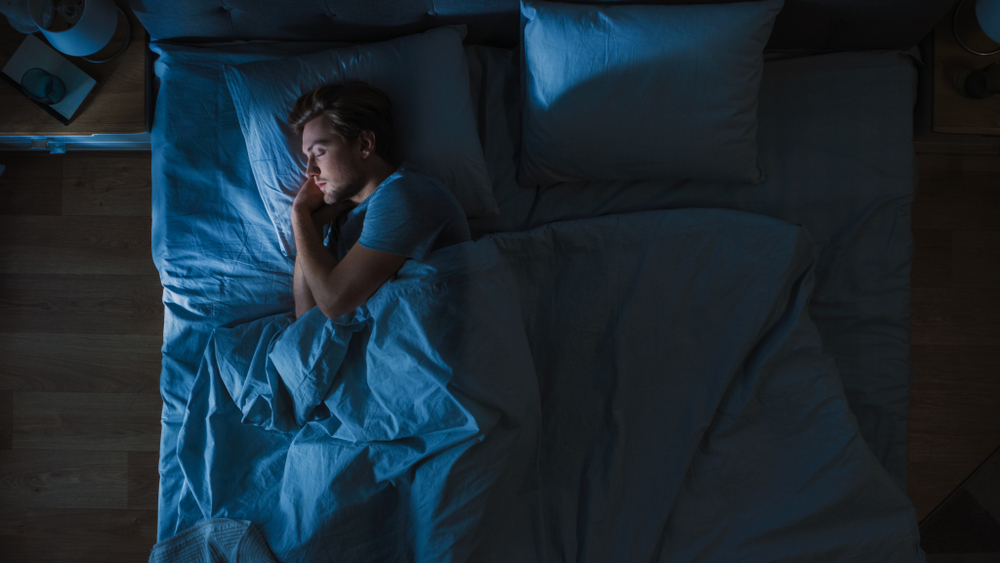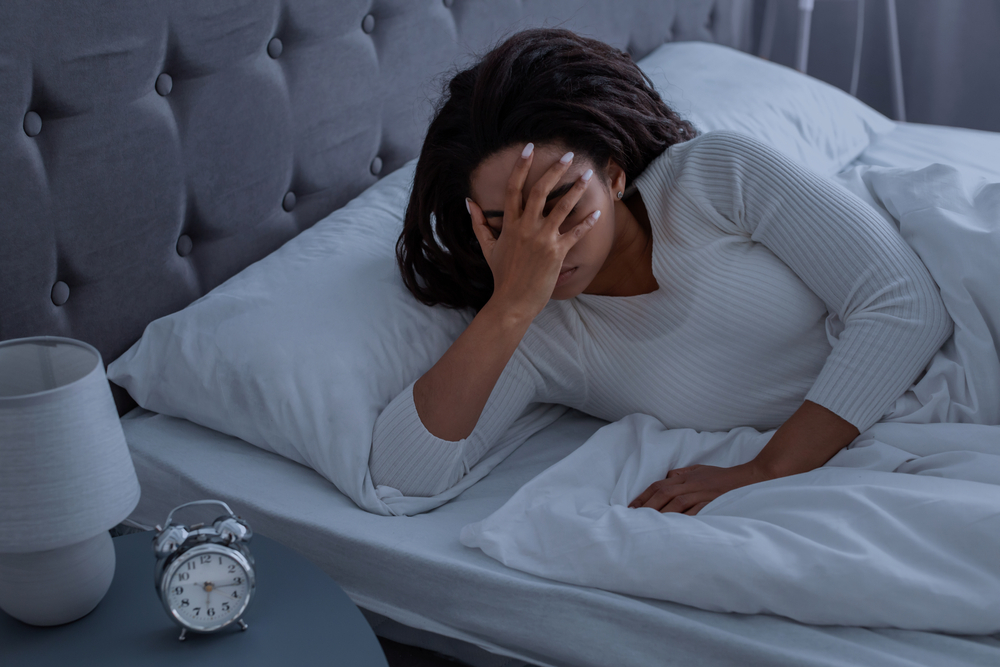
Decades of studies have confirmed that sleep is necessary for healthy functioning and even survival. It helps us think clearly, be alert, and sustain attention. It also helps us consolidate memories, regulate emotions, and improve overall health. However, substances like drugs and alcohol have disruptive effects on the natural sleep cycle. They make it hard to fall and stay asleep, exacerbate existing sleep problems, and lead to new ones.
Lack of sleep can lead to a range of physical and psychological issues, including mood changes, impulse behavior, suicidal thoughts, trouble thinking or concentrating, anxiety, depression, etc. But the relationship between sleep and recovery goes both ways. The way drug use can lead to sleep issues is the same way that sleep issues cause substance abuse. This article highlights this relationship and how consistent sleep patterns can help in the addiction recovery process.
Addiction is a chronic disorder characterized by compulsive drug seeking and use despite the negative consequences. It’s considered a brain disorder because it rewires the brain circuits responsible for self-control, stress, and reward. These changes can lead to a range of issues, including short and long-term sleep problems like:
Conversely, sleep deprivation and disorders can lead to substance abuse as people seek drugs or alcohol to self-medicate. Lack of sleep disrupts the brain's reward system, making it more susceptible to addiction. This vicious cycle further complicates recovery efforts.
Different substances can have varying effects on sleep, and the impact largely depends on the type of substance, the dose, and individual factors. Here’s a quick look at the effects of drugs on sleep:
Stimulants increase alertness, energy, and wakefulness and make it hard to fall asleep or stay asleep. If you use stimulants, you might experience episodes of insomnia, where you find it almost impossible to get a good night's rest. Additionally, the crash that follows stimulant use can lead to extreme fatigue and excessive sleeping, further destabilizing your sleep cycle.
A study of college students found that those with a history of nonmedical psychostimulant use had more sleep disturbance or worse subjective or overall sleep quality than those who hadn’t used such substances.
Depressants and sedatives have a sedative effect that makes you feel drowsy and relaxed. However, while they may help you fall asleep faster, they disrupt the natural sleep cycle. As your body processes these substances, they interfere with the deeper stages of sleep, resulting in fragmented rest.
Sedatives like alcohol have also been shown to increase the risk of snoring, sleep apnea, and snoring. People in recovery from alcohol, marijuana, and other sedatives may continue to experience sleep problems for weeks or even months after withdrawal.
Hallucinogens typically don't have a direct sedative or stimulant effect on sleep patterns. However, the hallucinatory experiences associated with these substances can lead to sleep disturbances. Vivid and sometimes unsettling dreams or nightmares are common after using hallucinogens. These dreams can disrupt your sleep, causing you to wake up frequently during the night and leading to a less restorative sleep overall.

Lack of sleep can hurt the physical, emotional, and mental well-being of those in recovery. It can also get in the way of substance abuse treatment. Sadly, studies reveal that persistent sleep disorders after withdrawal are linked to relapse. Let’s look at how sleep deprivation leads to substance abuse:
When you're sleep-deprived, your stress levels rise, and your ability to cope with anxiety diminishes. You may start seeking substances like alcohol or drugs as a way to self-medicate and temporarily relieve these feelings. Over time, this can lead to a dangerous pattern of substance abuse.
Sleep deprivation impairs your cognitive function and decision-making abilities. You might make impulsive choices, including experimenting with or using substances you wouldn't otherwise consider. This impaired judgment can lead to the initiation of substance abuse.
To combat this, you may turn to stimulants like caffeine or even more potent drugs to stay awake and alert. This quest for energy can quickly escalate into substance abuse, especially with highly addictive substances like amphetamines.
Sleep deprivation disrupts the brain's reward system. It can make you more susceptible to seeking immediate rewards, such as the pleasurable effects of substances. This craving for rewards can intensify and become a driving force behind substance abuse.

Sleep plays an important part in healing from substance abuse and can greatly contribute to a person’s recovery in the following ways:
Your body undergoes a natural detoxification process during sleep. It's during these crucial hours that the brain activates the glymphatic system, a waste clearance system that removes toxins and metabolic waste products. Adequate and uninterrupted sleep enables this process to work optimally, aiding in the elimination of substances from your system.
The detoxification process is often accompanied by withdrawal symptoms, which can be physically and emotionally distressing. Quality sleep helps mitigate some of these symptoms, such as physical discomfort, restlessness, and anxiety, making the detoxification process more manageable.
Consistent sleep patterns play a pivotal role in regulating neurotransmitters like serotonin and dopamine, which are closely tied to mood. Substance abuse disrupts these neurotransmitter systems, leading to mood swings and instability. Adequate sleep aids in mood stabilization and makes you feel more emotionally stable.
Mood swings are closely linked to cravings for substances. When you're well-rested, you're better equipped to manage these cravings and make healthier choices. This mood stability can be a powerful ally in your recovery journey.
Substance abuse often impairs cognitive functions like memory and learning. Sleep is essential for memory consolidation and the processing of information. With consistent sleep patterns, your brain has the opportunity to repair and enhance these cognitive functions, aiding in your overall recovery.
Sleep deprivation impairs decision-making abilities and can lead to impulsive choices, including returning to substance use. When you prioritize sleep, you can think more clearly and make more rational decisions, reducing the likelihood of relapse.
Recovery often requires significant lifestyle changes and therapeutic work. Consistent sleep helps improve attention and focus, enabling you to engage more effectively in therapy and adopt healthier habits.
Here are some bedtime routines to help you achieve a good night's sleep as a crucial part of your holistic healing from substance abuse:
If you continue to struggle with sleep despite your efforts, don't hesitate to seek guidance from a healthcare professional or therapist. They can provide tailored strategies and, if necessary, medication options to improve your sleep.
Sleep is crucial for individuals recovering from substance abuse because it plays a significant role in physical and mental health, as well as in the recovery process itself. Adequate sleep supports overall well-being by promoting physical healing, cognitive function, and emotional regulation. During sleep, the body undergoes essential processes such as tissue repair, immune system maintenance, and the consolidation of memories, all of which are vital for recovery from substance abuse and overall health. Moreover, sleep plays a crucial role in mood regulation and stress management. Poor sleep quality or insufficient sleep can exacerbate symptoms of anxiety, depression, and irritability, which are common challenges faced by individuals in recovery. Sleep deprivation can also increase cravings for drugs or alcohol and impair judgment and decision-making abilities, making it more difficult to resist relapse triggers and maintain sobriety. Therefore, prioritizing sleep as part of a comprehensive recovery plan can help individuals in recovery manage stress, reduce cravings, improve mood, and enhance overall well-being, contributing to long-term sobriety and recovery success.
Lack of sleep can significantly impact the recovery process from substance abuse by exacerbating existing challenges and hindering progress toward sobriety. Sleep deprivation can disrupt cognitive function, impairing memory, concentration, and decision-making abilities, which are essential for navigating the complexities of recovery. Moreover, inadequate sleep can contribute to mood disturbances, including increased irritability, anxiety, and depression, making it more challenging to manage stress and regulate emotions effectively.
These mood changes can increase vulnerability to relapse triggers and undermine efforts tomaintain sobriety.
Furthermore, sleep deprivation can intensify cravings for drugs or alcohol and weaken resolve to resist substance use. The brain's reward system becomes more sensitive to rewarding stimuli, including substances, when sleep-deprived, making it harder to resist impulses and cravings. Additionally, chronic sleep deprivation can compromise physical health, weaken the immune system, and exacerbate existing health conditions, further complicating the recovery journey. Therefore, prioritizing sleep hygiene and addressing sleep disturbances as part of a comprehensive recovery plan is crucial for optimizing outcomes and supporting long-term sobriety.
Yes, there are medications and therapies available to help improve sleep quality for individuals in recovery from substance abuse. Non-addictive medications such as certain antidepressants or antihistamines may be prescribed to address underlying sleep disorders such as insomnia or sleep disturbances resulting from substance withdrawal. These medications can help regulate sleep-wake cycles, promote relaxation, and improve overall sleep quality without the risk of addiction or dependency. Additionally, various behavioral therapies and interventions can be effective in improving sleep hygiene and addressing sleep-related difficulties. Cognitive-behavioral therapy for insomnia (CBT-I) is a structured, evidence-based approach that helps individuals identify and modify negative thoughts and behaviors that contribute to sleep disturbances. CBT-I techniques may include sleep restriction, stimulus control, relaxation training, and cognitive restructuring, among others, to promote healthier sleep patterns and improve sleep quality. Furthermore, incorporating mindfulness-based practices, relaxation exercises, and stress reduction techniques into daily routines can help individuals manage stress, reduce anxiety, and promote relaxation, facilitating better sleep. Overall, a comprehensive approach that combines medication management, behavioral therapies, and lifestyle modifications tailored to the individual's needs can help individuals in recovery improve sleep quality and support their overall well-being during the recovery process.
Individuals in recovery can adopt various lifestyle changes and habits to promote better sleep quality during the recovery process. Establishing a consistent sleep schedule by going to bed and waking up at the same time each day helps regulate the body's internal clock and promotes better sleep quality. Creating a relaxing bedtime routine, such as taking a warm bath or practicing deep breathing exercises, can signal to the body that it's time to wind down and prepare for sleep. Additionally, ensuring that the sleep environment is comfortable and conducive to restful sleep by keeping the bedroom cool, dark, and quiet and investing in a comfortable mattress and pillows can further support quality sleep.
Limiting stimulants such as caffeine and nicotine in the hours leading up to bedtime, as well as minimizing exposure to electronic devices that emit blue light, helps prevent sleep disturbances. Engaging in regular exercise during the day promotes better sleep quality by reducing stress and promoting relaxation, though vigorous exercise should be avoided close to bedtime. Practicing stress reduction techniques like mindfulness meditation or yoga can also help manage stress and promote relaxation before bedtime. Lastly, limiting alcohol and heavy meals before bed can prevent disruptions to sleep patterns and discomfort that may interfere with falling asleep and staying asleep. By incorporating these lifestyle changes and habits, individuals in recovery can support better sleep quality, enhance their overall well-being, and strengthen their recovery journey.